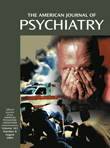Impact of Sleep Deprivation and Subsequent Recovery Sleep on Cortisol in Unmedicated Depressed Patients
Abstract
OBJECTIVE: One night of sleep deprivation induces a transient improvement in about 60% of depressed patients. Since depression is associated with abnormalities of the hypothalamic-pituitary-adrenal (HPA) axis, the authors measured cortisol secretion before, during, and after therapeutic sleep deprivation for 1 night. METHOD: Fifteen unmedicated depressed inpatients participated in a combined polysomnographic and endocrine study. Blood was sampled at 30-minute intervals during 3 consecutive nights before, during, and after sleep deprivation. Saliva samples were collected at 30-minute intervals during the daytime before and after the sleep deprivation night. RESULTS: During the night of sleep deprivation, cortisol levels were significantly higher than at baseline. During the daytime, cortisol levels during the first half of the day were higher than at baseline in the patients who responded to sleep deprivation but not in the nonresponders. During recovery sleep, cortisol secretion returned to baseline values. CONCLUSIONS: This study demonstrated a significant stimulatory effect of 1 night of sleep deprivation on the HPA axis in unmedicated depressed patients. The results suggest that the short-term effects of antidepressant treatments on the HPA axis may differ from their long-term effects. A higher cortisol level after sleep deprivation might transiently improve negative feedback to the hypothalamus or interact with other neurotransmitter systems, thus mediating or contributing to the clinical response. The fast return to baseline values coincides with the short clinical effect.



